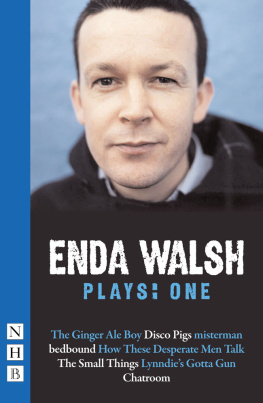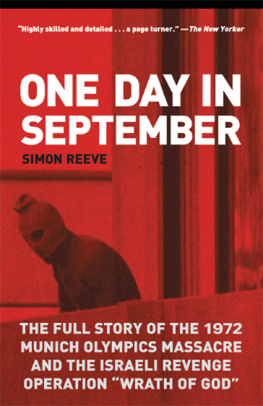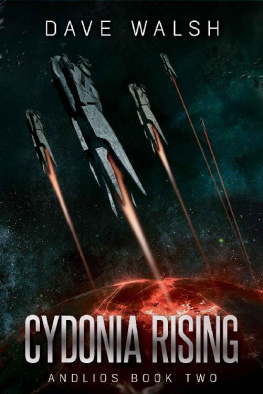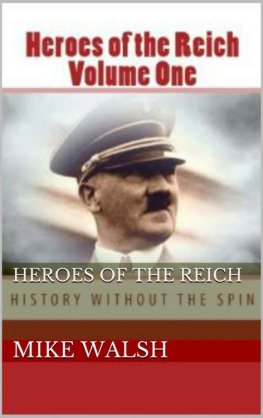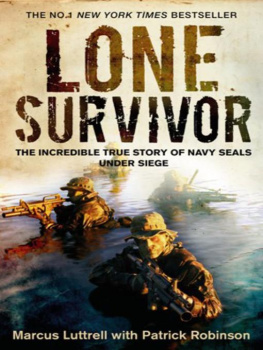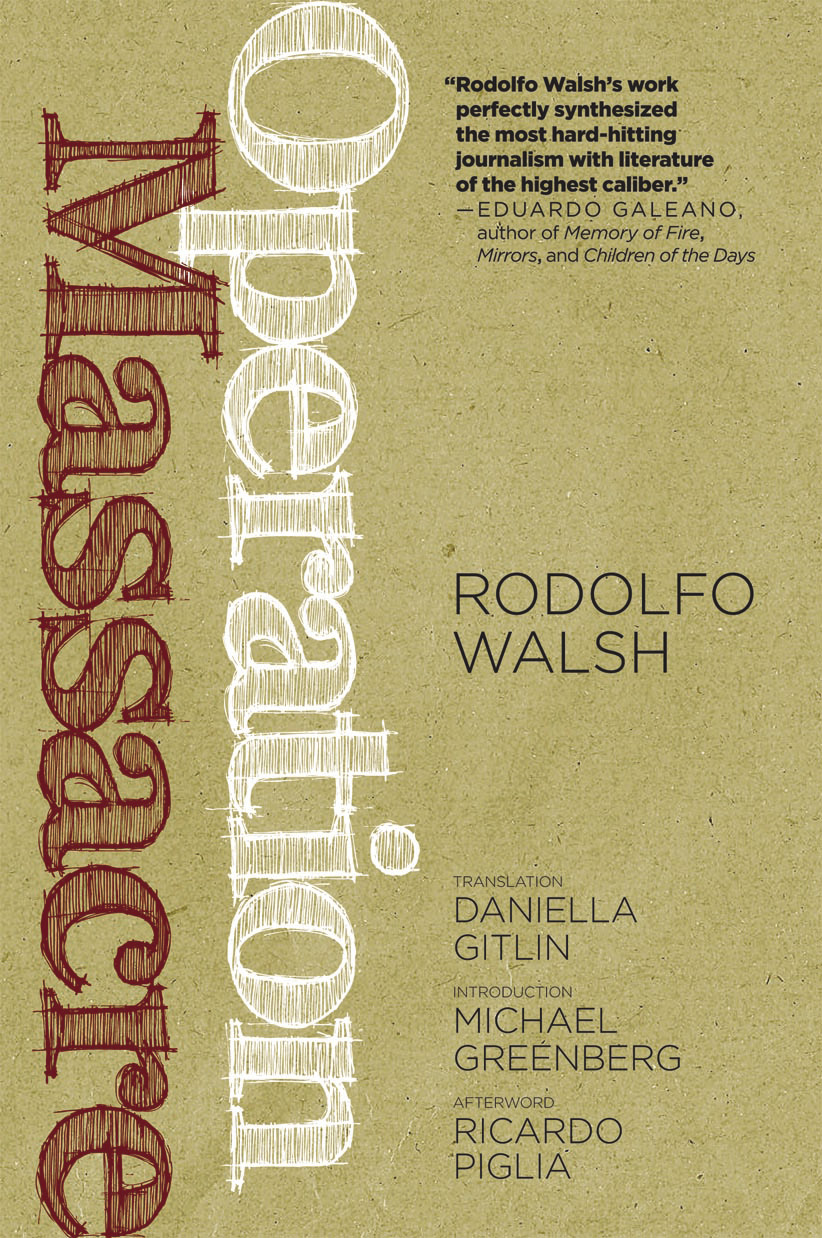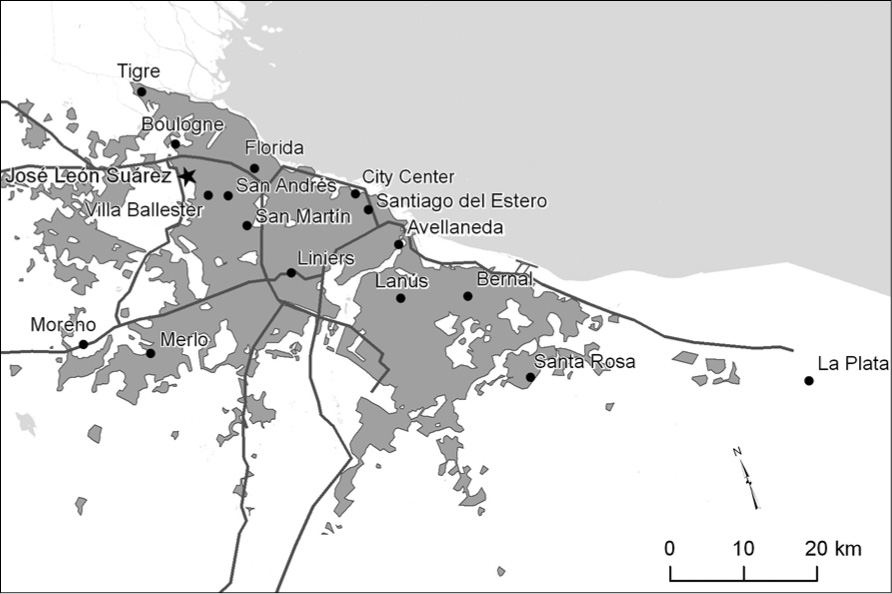Originally published by Sigla, 1957 ; Editorial J. Alvarez, ; Casa de las Amricas, 1970 ; Ediciones de la Flor, 1972 , 2009 under the title Operacin Masacre
Permission from the Fondo de Cultura Econmica to adapt portions of Ricardo Piglias Tres propuestas para el prximo milenio (y cinco dificultades) (2001).
All rights reserved. No part of this book may be reproduced, stored in a retrieval system, or transmitted in any form or by any means, including mechanical, electronic, photocopying, recording, or otherwise, without the prior written permission of the publisher.
College professors may order examination copies of Seven Stories Press titles for free. To order, visit http://www.sevenstories.com/textbook or send a fax on school letterhead to ( ) - 1411 .
Walsh, Rodolfo J.
[Operacin masacre. English]
Operation massacre / by Rodolfo Walsh ; translated by Daniella Gitlin ; foreword by Michael Greenberg ; afterword by Ricardo Piglia. -- Seven stories press first edition.
pages cm
Includes bibliographical references.
ISBN 978-1-60980-513-5 (pbk.)
1. Argentina--History--Revolution, 1955. 2. Argentina--Politics and government--1943-1955. 3. Police--Argentina--Buenos Aires (Province) I. Gitlin, Daniella. II. Title.
F2849.W313 2013
982.06--dc23
2013012770
Printed in the United States
The declarant adds that the task with which he had been charged was horribly unpleasant, and went far beyond the stipulated duties of the police.
Police Commissioner Rodolfo Rodrguez Moreno
Contents
( from the first edition, July 1957 )
( to the first edition, March 1957 )
( from the first edition, July 1957 )
( from the first edition, July 1957 )
( to the second edition, 1964 )
( end of the epilogue to the third edition, 1969 )
Introduction
I was nineteen when I arrived in Argentina in the fall of . I had been drawn to South America by the literary explosion that began in the 1950 s and was still going ona historical burst of creativity exemplified by Julio Cortzar, Garca Mrquez, Borges, Ernesto Sbato and other equally potent, unclassifiable writers who were, collectively, in the process of changing the tenor of world literature.
Upon arriving, however, what immediately captured my attention wasnt literature but the political upheavals of the continent with their alarming urgency of living, present time. In those vintage Cold War years, the political fate of South Americathe mood in the Latino forests and highlands and streetswas as pressing to US foreign policy as that of the Muslim world is today. Fidel Castro was ten years into his reign over Cuba and at the height of his influence. Salvador Allende, a cultivated, European-style Socialist, was the democratically elected president of Chile. And set to return to Argentina was Juan Domingo Pern, an aging populist with a bewildering, fascist-inflected philosophy who was beloved by Argentinas working class.
Pern had been deposed by a violent military coup in 1955 . He had been in exilefirst in Panama, then in Spainfor eighteen years. During that time, his Peronist party was outlawed, despite or perhaps because of the fact that it would have won any open election by a landslide. After the 1955 coup, the mere utterance of Perns name was prohibited and punishable by law.
But in 1972 , after a seemingly unending succession of inept military and civilian governments, Pern had struck a deal to return, assume the presidency, and save the country from a leftist guerrilla movement that had been operating in his name.
I hadnt been in Buenos Aires long before I became familiar with the name Rodolfo Walsh. A writer and intellectual hero of the left, Walsh was known to anyone with even a glancing interest in the political scene. In a country of adventurers, avant gardists, gangs, demagogues, and sloganeers from every point on the political spectrum, he was a rare voice of integritya staunch, clear-eyed realist, more swayed by concrete events than abstract political strategies and ideas. With his strong moral compass, his horse sense, and independent investigative rigor, Walsh was, in the benighted land of Argentina of the 1970 s, a cross between Orwell and Woodward and Bernstein.
Operation Massacre is Walshs most famous worka precise, meticulously researched account of the execution, on June , 1956 , of five men suspected of participating in a failed coup against the military government designed to return Pern to power. No major Argentine news outlet would touch the story, and Walshs expos was published in a small journal between May and July , 1957 , and then as a book later that year.
Walsh was thirty when he wrote Operation Massacre . In spite of the virtual media blackout it faced, the book would launch his career as a public intellectual and political journalist. (In 1960 , he would become one of the founders of the Latin American wire service Prensa Latina.) It is a classic case of a writer who, presented with a subject of pressing injustice, puts aside his other literary ambitions. The story of the secret executions of June 1956 came to Walsh by chance. At the time, by his own account, he was an avid reader of fantasy literature, a writer of detective stories, an aspiring serious novelist, and, last of all, a journalist. He had been staunchly anti-Peronist at the time of the 1955 coup that overthrew Pern, put off by Perns zealous persecution of lawful dissenters and his admiration for Mussolini, after whose government Pern had modeled his own, right down to the establishment of a loyal band of privileged workers who acted as his street enforcers and unofficial thugs. By the same token, as a man of the left Walsh could not support the equally repressive stupidities of the military government that replaced Pern. This relative impartiality lent a moral authority to Operation Massacre that a more partisan report could not have possessed.
The irrefutable nature of Walshs investigation is one of the reasons for the books enduring power. In a country where state atrocities were routinely buried, where silence was a civic means of survival, where innocent citizens could be kidnapped and executed without leaving a trace and even their families kept in the darkin this country Operation Massacre was a work of enormous importance. The book was, and remains, a warning and prophecy of what was to come, a cry to a judicial system that, with few exceptions, allowed and even encouraged the states security forces to act with impunity.
Most important, it is a document that fully examines the events, the people, the mechanism of the murders, while identifying and holding accountable everyone involved. Operation Massacre is a true crime story, designed not to titillate or exploit but to instruct, to reveal and enlighten. It is built upon that rarest element of Argentine life at the time: facts. Facts were a form of sedition with their icy power that nothingnot opinion, passion, or rumorcould equal. Uttering, much less publishing, the facts in those days could be punishable by death.



